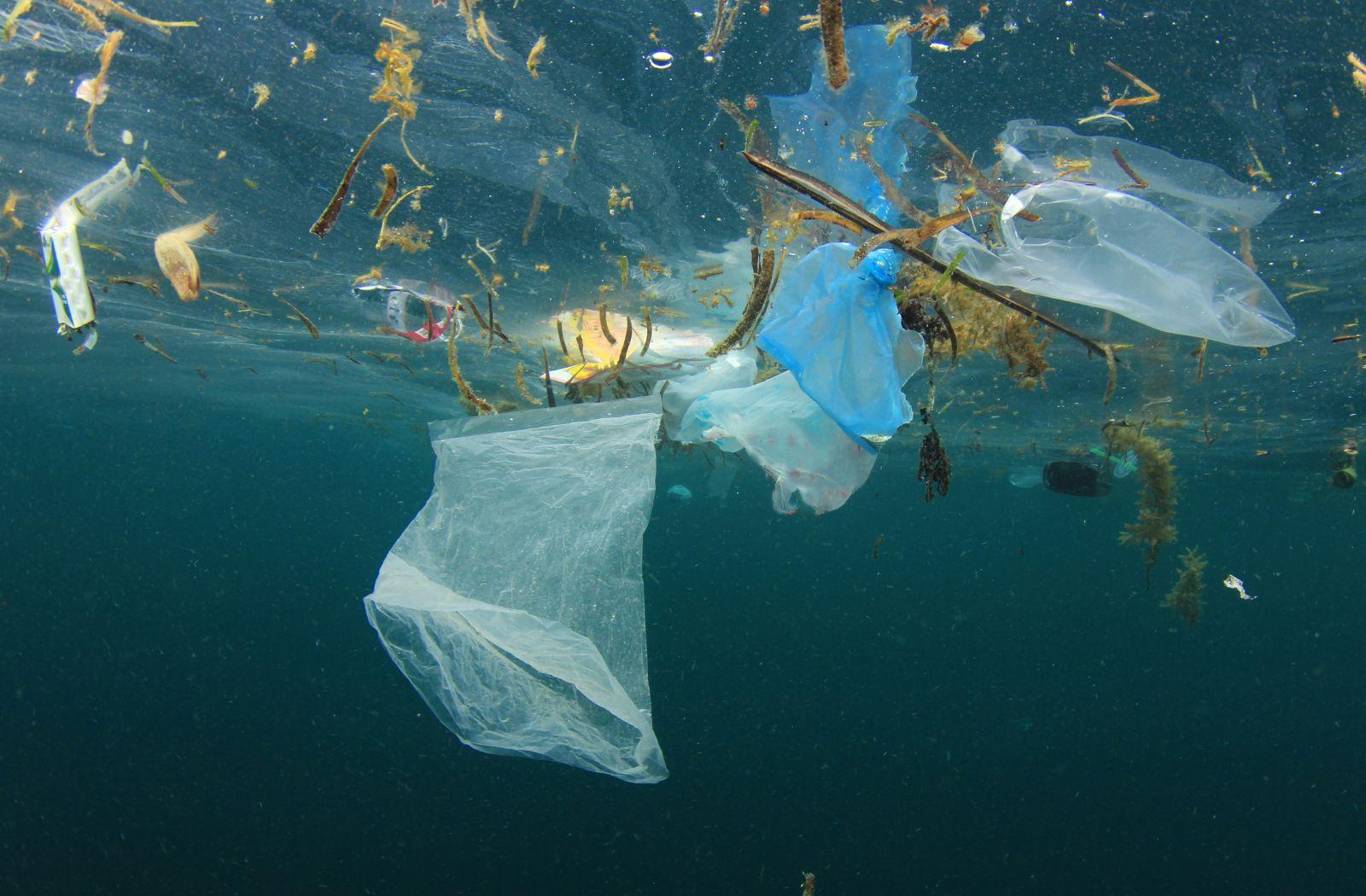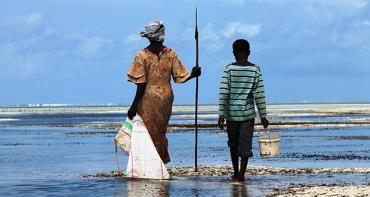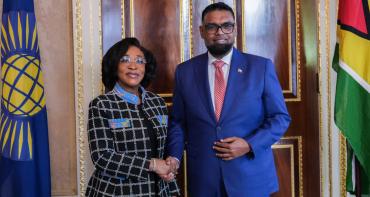With over 12 million tonnes of plastic entering the ocean annually, the cost of inaction is untenable. Commonwealth stakeholders are now better equipped to advocate for a bold and inclusive pathway that reflects the priorities of its members and builds momentum towards sustainable, circular economies.

Recently, the Commonwealth Clean Ocean Alliance (CCOA) hosted a high-level briefing webinar ahead of the fifth session of the Intergovernmental Negotiating Committee (INC-5) in the Republic of Korea, which seeks to develop a landmark legally binding treaty to end plastic pollution.
Held in collaboration with the Organisation for Economic Co-operation and Development (OECD), the event offered critical insights to Commonwealth officials and stakeholders, equipping them with the knowledge and tools needed to shape those negotiations.
INC-5, scheduled for 25 November to 1 December 2024, will be preceded by regional consultations on 24 November, offering countries an opportunity to align their positions ahead of the formal discussions.
With plastic waste projected to triple by 2040 under current trends, the webinar provided a platform to examine findings from the OECD’s groundbreaking report, Policy Scenarios for Eliminating Plastic Pollution by 2040. The event also addressed key legal considerations for the treaty and practical preparations for INC-5.
Informing the path to 2040
The OECD report, presented by its authors, underscores the importance of ambitious international collaboration to tackle the escalating plastic crisis. It noted:
“Our analysis shows that without urgent and coordinated global action, plastic pollution will overwhelm our oceans, ecosystems, and economies. However, with the right policies, it is possible to significantly reduce pollution while fostering innovation and economic opportunities. Commonwealth countries can play a leading role in shaping a global framework that turns these possibilities into realities.”
The report provides evidence-based projections of plastic waste generation, treatment, and leakage, offering policy scenarios with varying levels of ambition. These insights are pivotal as Commonwealth nations push for solutions that not only mitigate pollution but also drive sustainable development.
Legal and logistical foundations
Jyoti Mathur-Filipp, Executive Secretary of the INC Secretariat, highlighted the importance of informed participation in her address:
“The INC-5 negotiations represent a historic moment to shape a future free from plastic pollution. This webinar equips Commonwealth delegates with the practical knowledge and logistical support they need to engage effectively. By working together, we can ensure the treaty addresses the needs of all stakeholders and delivers tangible results for the planet.”
The legal dimensions of the treaty were explored in depth by Andrés Del Castillo of the Center for International Environmental Law (CIEL):
“We must adopt a lifecycle approach that tackles plastic pollution at every stage—from production and consumption to waste management and disposal. This treaty has the potential to not only protect our marine ecosystems but also transform how we view plastics within our economies. It is a unique opportunity to craft a legal framework that ensures accountability and long-term sustainability.”
A collaborative Commonwealth response
Since its establishment in 2018 under the Commonwealth Blue Charter, the CCOA—co-led by the UK and Vanuatu—has been a driving force in addressing ocean plastic pollution. A representative from Defra reinforced the urgency of action:
“Plastic pollution transcends borders, devastates ecosystems, and threatens livelihoods, especially in Small Island Developing States. The Commonwealth brings together a diverse range of countries through CCOA that can champion collective solutions. This treaty is our chance to lead by example and protect the ocean for future generations.”
Alison Swaddling, Ocean Governance Adviser at the Commonwealth Secretariat, underscored the importance of swift action, referencing the Apia Commonwealth Ocean Declaration adopted at the recent Commonwealth Heads of Government Meting (CHOGM) in October. She said:
“The fight against plastic pollution is one of the defining challenges of our time. Through the Apia Commonwealth Ocean Declaration, our member countries have called for the immediate conclusion of the Global Plastics Treaty negotiations. INC-5 is a vital step towards achieving this goal, ensuring the treaty reflects the principles of equity, inclusivity, and ambition that are at the heart of the Commonwealth. By taking decisive action now, we can secure a healthier ocean and a sustainable future for all.”
Call to action
As negotiations approach, the Commonwealth Secretariat remains steadfast in its support for member countries, fostering partnerships and building the capacity of all members. For further information, contact the Blue Charter team at [email protected]
Media contact
-
Suné Kitshoff Senior Communications Officer, Communications Division, Commonwealth Secretariat
- M: +44 7740 450 901 | E-mail



